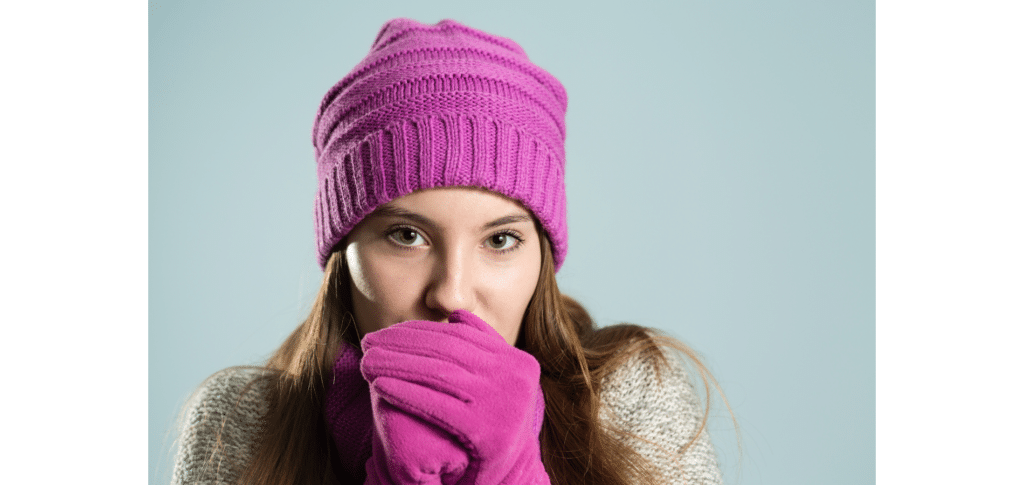My first visual encounter with a football player wearing gloves on screen was Arsenal’s iconic talisman Thierry Henry.
I vividly recall moments where he would blitz past helpless defenders on the pitch and coolly slot the ball past the opposition goalkeeper, after which he’d make a pointing gesture – either to his team mates or the surrounding fans – with his hands wrapped in black-coloured gloves.
That was back around the early 2000s and since then, the uptake of gloves within football has grown pretty exponentially.
In today’s article, I seek to answer the popular question – why do footballers wear gloves?
As with many questions pertaining to the sport, there usually isn’t a single unifiable answer.
But if I was to take a stab at providing a summary, it would read like this:
Footballers wear gloves primarily to keep warm and comfortable on the pitch, as competitive fixtures sometimes take place during cold and wintery evenings. In addition, players like to cover their hands with gloves as part of a stylistic fashion choice, especially due to their prominence within the media limelight.
Now let’s dig a little deeper to understand what these reasons mean.
Why do footballers choose to wear gloves?
Let’s now take a deeper look at a couple of these reasons, starting with the most obvious one…
1. Warmth

Having previously worked as a steward for League 2 side Bradford City during my university days, I can easily attest to how cold football stadiums are.
Particularly in the evenings, it doesn’t take much for your legs to completely freeze over.
The professional clubs pay a lot of money for their players to perform efficiently at the highest levels of the sport, and keeping them warm during games is certainly one of their priorities.
When it comes to cold temperatures, the body is said to prioritise the protection of core organs at the centre of the anatomy – like the lungs and the heart – by keeping blood flow going to and from these areas and reducing flow to the far out extremities such as the hands and feet.
Because of this, an athlete’s hands and feet get colder as they play, even if they are actively involved in the game doing lots of running, passing and tackling.
Exposure to cold weather on a regular basis can lead to a plethora of health related problems like frostbite which is where affected skin and tissue go numb, or even hypothermia which occurs when the body loses heat at a faster rate than it can generate.
So, gloves play a starring role in preventing these issues from ever flaring up, as they provide hands with the necessary warmth needed when the body has its hands tied keeping the central core and vital organs in good nick.
2. Style
For some footballers, wearing gloves is simply a case of aesthetics.
They want to look good whilst they compete on the pitch and they are well within their own rights to do that.
A couple of examples of players that wear gloves with short-sleeved shirts include:
- Riyad Mahrez
- Sergio Aguero
- Nicolas Otamendi
- Anthony Martial
As what is fashionable is largely subjective in nature, it is expected that some players will hold an opinion that they look good wearing gloves during a game.
What’s more is that some pairs of gloves can really complement a player’s overall look, particularly if the colour of the player’s kit matches nicely with the gloves that they plan on wearing.
3. Comfort

Anecdotally, I’ve always been able to focus on a particular task at hand if I’m in a relaxed environment that provides me with the resources that I need to perform my best work.
Gloves arguably work in this same way for footballers.
The softness of the fabric that the gloves are made from provides additional comfort and allows them to focus on performing at their best, as their hands don’t have to deal with the cold temperatures or blustery winds that they would otherwise encounter if they were uncovered.
This ultimately allows the athlete to fully concentrate on performing to the best of their ability without distractions.
4. Reduced wear and tear
This reason is perhaps more pertinent for goalkeepers as opposed to outfield players, but it matters all the same.
Gloves are great for reducing wear and tear on the hands and here’s a short video which illustrates exactly why.
Think about how a sliding tackle is executed for just a moment.
The person performing the move uses their hands to support their body as they slide across the turf on the stretch to try and obtain the ball.
With their hands in motion, rubbing against the grass as they slide, they are bound to pick up scrapes and bruises from the resulting friction.
Wearing gloves reduces this friction as the fabric is able to absorb the force that comes with the associated sliding movement, which ultimately keeps the glove wearer’s hands clean and free from cuts.
On the other hand, goalkeeper gloves serve a slightly different purpose as they are worn for extra grip and to cushion the wearer’s hands from the forceful impact of a well struck ball.
Closing thoughts
That brings me to the end of this piece.
In summary, footballers wear gloves mainly to keep warm and comfortable during matches that take place in rainy, windy or snowy conditions. Secondary to that, gloves help to accentuate their personal style.
Most European countries have much cooler climates as opposed to nations in Africa and Asia, and its usually why you’re more likely to spot a professional footballer wearing gloves in England or Spain, as they battle against cold temperatures more often.
If you’ve enjoyed this article, you might want to check out another interesting one that I published, which discusses what beverages footballers drink.
If you enjoy the content that I create and would like to buy me a coffee, then I’d really appreciate it!
Any money that I earn through this donation will be re-invested into more content for this website.
Additionally, by sending in a donation you’ll also receive a copy of my recently released 190+ page eBook on Soccer Ball Care, as well as be subscribed to our mailing list where you’ll be regularly informed on the latest developments concerning the Soccer Whizz blog.
- Future Icons: Europe’s Emerging Midfield Maestros Set for Glory - December 4, 2023
- Kickstarting a Revolution: How Soccer Transformed the United States Over the Last Four Years - October 7, 2023
- 4-1-4-1 Soccer Formation [Analysis] - September 23, 2023

